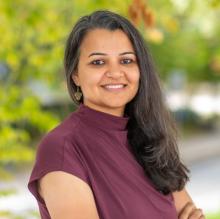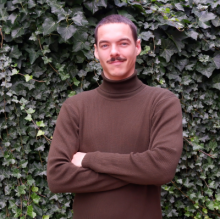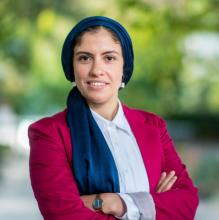In collaboration with Pacific Post Partum Support Society, we will develop and deliver an evidence-based workshop about parental sleep and ways to improve infant and parental sleep to parents.
Research Description
In collaboration with Pacific Post Partum Support Society, we will develop and deliver an evidence-based workshop about parental sleep and ways to improve infant and parental sleep to parents. We will also develop a knowledge translation video by integrating workshop content and existing video footage of parents who have experienced postpartum mood problems which will be made available on their website.
What does being a Public Scholar mean to you?
I am so honored to be selected as a Public Scholar. Being a Public Scholar means a lot to me because the PSI offers support for mobilizing research knowledge that will make a difference in the lives of families with young children. My aim is to improve parental mental health and overall well-being by helping parents improve their sleep. I feel obligated to ensure that this body of research and generated knowledge is available beyond academic databases. Knowledge about sleep and mental health must be made widely available to both families and the professionals who work closely with them.
In what ways do you think the PhD experience can be re-imagined with the Public Scholars Initiative?
Becoming a Public Scholar has helped me re-imagine the PhD experience. A dissertation must move beyond the typical two-to-three hundred page tome that is either never again looked at again or skimmed by a few graduate students. The PSI is intended to help students achieve purposeful social contributions and to produce new and creative forms of scholarship and dissertations. I see those aims as enhancing what dissertation research has to offer to the wider community. From my dissertation work, I plan to create innovative knowledge products that are easily accessible to the public.
How do you envision connecting your PhD work with broader career possibilities?
I believe being a Public Scholar will enrich my career by helping me to identify opportunities to engage with the public. I view my future career as a community-engaged academic. I hope that my experiences working with the cohort of public scholars, community stakeholders, and research scholarship will support my efforts to consult about creating public policy in the future.
How does your research engage with the larger community and social partners?
I feel so fortunate to be collaborating with Pacific Post Partum Support Society. Pacific Post Partum is a non-profit organization that is unique in British Columbia. The organization has been supporting mothers and their families experiencing postpartum and perinatal distress for more than 45 years with an approach where mothers support mothers. The leaders have their finger on the pulse of reproductive mental health care in BC as well as in the rest of Canada because they are in close contact with public health nurses, community agencies that support families, and, most of all, parents. Through my partnership with them, we will mobilize the findings from my research and other related research on maternal-infant sleep quality and mood so that it is available directly to families through their workshops.
Why did you decide to pursue a graduate degree?
As a registered nurse, I have worked closely with patients and families – while this 1 on 1 work is so important, I found limits to the reach I could have as a single clinician. Pursuing and acquiring a graduate degree provides me with the tools necessary to carry out research that can improve the lives and wellbeing of families and to mobilize this knowledge for public benefit.
Why did you choose to come to British Columbia and study at UBC?
Vancouver is home but I applied to UBC because I wanted to study with Dr. Wendy Hall, one of the nursing leaders in sleep research in Canada. I was ecstatic to be accepted into the PhD program at the School of Nursing as it is a renowned nursing PhD program in Canada.
My aim is to improve parental mental health and overall well-being by helping parents improve their sleep. I feel obligated to ensure that this body of research and generated knowledge is available beyond academic databases.




